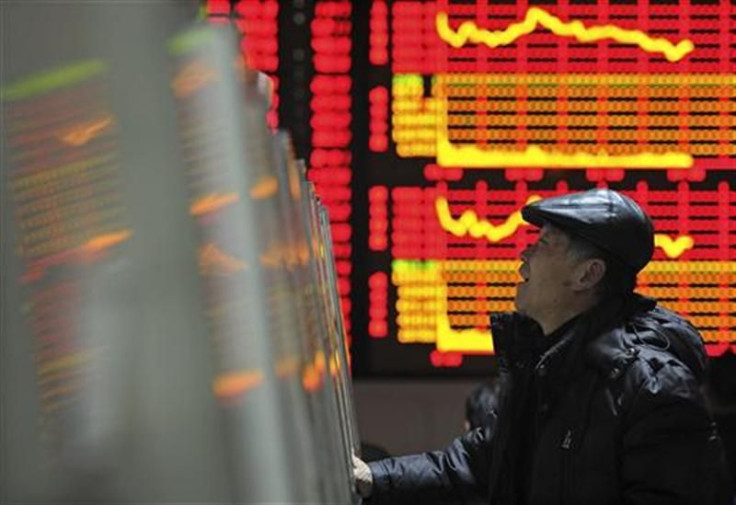Asian Stocks Fall On Fed?s Moderate Stimulus Measure, Weak China Data

Most Asian markets fell Thursday as investors felt let down by the U.S. Federal Reserve, which did not announce a further round of quantitative easing.
Another factor that dragged the market down was the report that China's manufacturing activity continued to contract for the seventh straight month, according to the preliminary HSBC Flash Purchasing Managers Index (PMI) report released Thursday. The preliminary reading of the PMI fell to 48.1 in June, compared to 48.4 in May.
The Chinese Shanghai Composite Index fell 1.36 percent or 31.17 points to 2,261.71. Hong Kong's Hang Seng dropped 0.81 percent or 157.77 points to 19,361.08. Major losers were China Coal Energy Co. (3.61 percent), CNOOC Ltd (3.36 percent) and Bank of Communications Co. (1.54 percent).
South Korea's KOSPI Composite Index fell 0.75 percent or 14.22 points to 1,889.90. Shares of Samsung Electronics Co. declined 1.4 percent and shares of Hyundai Motor Co. dropped 1 percent.
India's BSE Sensex fell 0.17 percent or 29.02 points to 16,867.61. Major losers were Cairn India Ltd (2.22 percent), Ambuja Cements Ltd (2.14 percent) and GMR Infrastructure (1.33 percent).
Contrary to other Asian markets, Japan's Nikkei Stock Average advanced 0.96 percent or 84.38 points to 8,836.69. Exporters made gains with the dollar strengthening against the Japanese yen. Among major gainers were Honda Motor Co. (3.2 percent), Nissan Motor Co. (1.5 percent) and NEC Corp. (1.4 percent).
Investor sentiment was down as the Fed opted to extend its Maturity Extension Programme (MEP), also called Operation Twist, for another six months, but there was no new large scale asset purchase program (QE3). The MEP was originally due to finish at the end of this month, but the Fed announced Wednesday it will keep it going until the end of this year.
The accompanying statement from the Fed warned that strains in global financial markets continue to pose significant downside risks to the global economy. If those risks increase, then investors suspect the Fed will be pretty quick off the mark to take more aggressive action.
The Federal Open Market Committee (FOMC) also reduced its economic growth forecasts quite significantly to between 1.9 percent and 2.4 percent this year, down from an April projection of between 2.4 percent and 2.9 percent.
© Copyright IBTimes 2024. All rights reserved.











